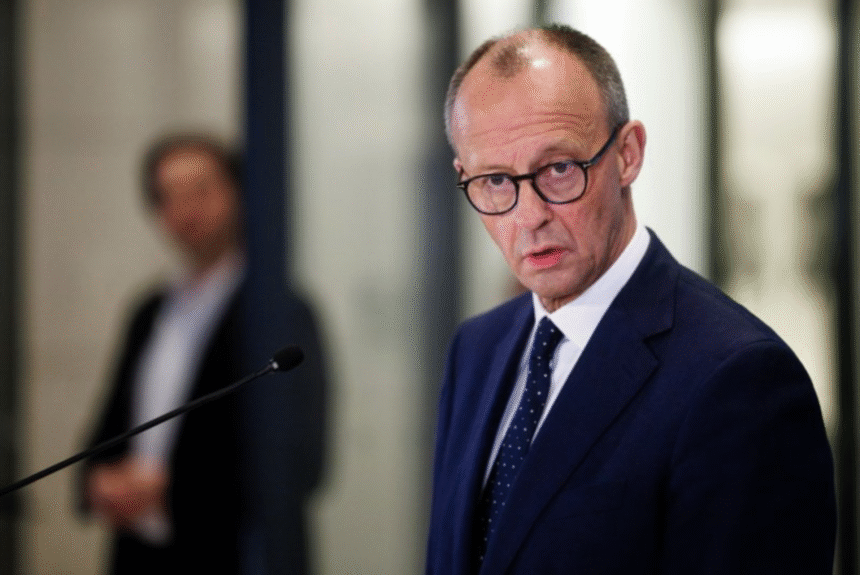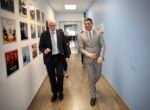Germany’s new government has made significant promises to the economy, which is now demanding swift action. However, hopes for a quick recovery are diminishing amidst global crises.
The annual “Industry Day” in Berlin, where Germany’s leading business figures gather, is a key event where politics and economy intersect. Top federal politicians from the Chancellor’s office, ministries, and party headquarters readily attend, reflecting the current relationship between the government and industry.
In 2023 and 2024, then-Chancellor Olaf Scholz faced sharp criticism over his coalition government (Social Democrats, Greens, and Liberals). The Russian invasion of Ukraine and its fallout, the energy crisis, inflation, persistently high electricity prices, and more plunged Germany into a prolonged recession. Siegfried Russwurm, then-President of the Federation of German Industries (BDI), spoke of “lost years” for the German economy, accusing the Chancellor of underestimating the situation’s severity. Scholz retorted, referring to “years of transformation” and cautioning against belittling the country’s economic potential.
Global Crises Hinder Recovery; New Government Offers Hope
Germany’s economy remains stagnant in 2025. There will be no economic recovery this year, predicted Peter Leibinger, the new BDI President, at the opening of Industry Day. He pointed to numerous global crises: trade conflicts with the U.S., the Israel-Iran war, and U.S. military engagement—all contributing to negative impacts on the global economy and trade.
Consequently, there is significant concern within the industry. “We face a longer and harder path out of recession than we had hoped,” Leibinger stated.
Despite these challenges, the mood in the business sector is notably better than last year. This is attributed to the new federal government (a grand coalition of Christian Democrats and Social Democrats) and its promise to ease the burden on businesses. “The direction is now correct again,” Leibinger said, praising the new coalition for its “sense of urgency.” “This is quite different compared to the previous government.”
One of the first legislative proposals, already in the Bundestag, is the “Growth Serum”—a package of tax breaks for businesses aimed at stimulating investments. “In the last 20 years, we have not had tax cuts in Germany—now we are introducing them,” said Chancellor Friedrich Merz at the gathering. Merz believes this will make Germany more competitive again and expressed satisfaction with the support received: “Yes, this is a new beginning, we are entering this work with a new spirit and we know what to do.”
Fiscal Challenges and Investment Drive
However, matters are not as smooth as Merz portrays. If businesses pay less tax, it will create a significant deficit in the budgets of the federal government, federal states, and municipalities, which share tax revenues. A shortfall of around €48 billion is projected. States and municipalities are unwilling to accept this and demand that the federal government compensate for losses, as it designed the law.
The federal budget is also under pressure. Although large debts can be incurred in the future for defense spending and investments in dilapidated infrastructure (totaling €500 billion over the next 12 years), savings will be necessary in many other areas. Almost all projects from the coalition agreement are subject to financial constraints.
Under such circumstances, economic growth is urgently needed, as a stronger economy yields higher tax revenues. Federal Finance Minister and Social Democratic Vice-Chancellor Lars Klingbeil is also counting on foreign investors. “In these times, when uncertainty is growing across the Atlantic, we are sending a clear message to investors that it pays to invest in Germany—that we are a safe haven. With stability, a functioning rule of law, and a free society.”
Klingbeil also announced that the federal government will decide on lowering electricity and gas prices, aiming to make Germany more attractive. Planned infrastructure investment package will also contribute to this. “I want the excavators to start working as soon as possible,” Klingbeil said. Roads, railways, bridges, digital infrastructure, and energy and heating networks will be modernized and expanded. “This is crucial for economic efficiency, sustainable, safe, accurate mobility, digital administration, well-developed charging infrastructure for electric vehicles, well-developed networks—infrastructure we can be proud of again,” Klingbeil stated.
Tackling Bureaucracy and US Tariffs
The business community consistently complains about high administrative costs. The bureaucratic “jungle of regulations” arose because of an over-reliance on prevention, explained Chancellor Friedrich Merz at Industry Day. “Nothing must happen, every risk is foreseen and eliminated in advance—and thereby we become incapable of action.” In other countries, there is more reliance on the principle of responsibility. “Much is allowed, one can try—and if it fails, the responsible party bears the consequences.” This spirit must return to Germany.
However, economic recovery will not depend solely on the new government. For the BDI, the customs conflict with the U.S. poses a particularly high risk. If U.S. tariffs truly come into effect, they could cost the German economy about 0.3 percent of growth, Peter Leibinger said.
In this context, the German Chancellor criticized the EU’s negotiation style. “This European Union negotiates too complicatedly. Americans are what they are—relatively simple, they want an agreement on four or five major industries.” Negotiating hundreds of different tariff codes with Americans now is “the wrong moment with the wrong topic,” Merz believes.
He called for a quick agreement in key industries: “We are not looking for the best of the best, but the most important of the necessary. Automotive industry, chemicals, pharmaceuticals, mechanical engineering. These areas are of existential importance for us—steel, aluminum. We need a quick agreement with the Americans there.”
The industry also hopes for this and tells politicians: announced measures must now be followed by concrete steps quickly. The Chancellor knows this too, comparing the expectations placed on him to stock market prices, which also rise with expectations. “We must not disappoint those expectations.” Merz hopes that by the next German Industry Day, in 2026 at the latest, a “first interim balance” can be drawn.







